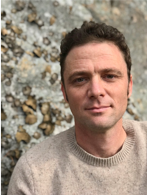The genomic basis of rapid evolution in fluctuating environments
Le 18 Février 2022
Alan O. Bergland
16h00 - Online

Alan O. Bergland
Department of Biology, The University of Virginia, Charlottesville, USA
Link to seminar: https://umontpellier-fr.zoom.us/webinar/register/WN_TArT64i2SWu1GTqEPGrwNg
Variation in the strength and direction of natural selection through time is a ubiquitous feature across the tree of life. Adaptive tracking, a form of rapid evolution in which populations evolve to track environmental change in a few genera-tions, has been proposed as an evolutionary response to temporally heterogeneous selection. Yet, we have a limited understanding of the prevalence of adaptive tracking and its effects on patterns of diversity in phenotype and genotype. We study adaptive tracking of Drosophila melanogaster living in temperate orchards. Due to their rapid development time flies have multiple generations per year (~10), enabling us to study their evolutionary dynamics in real-time and across varied spatial landscape. Our work focuses on three areas: (a) characterizing genomic signals and environmental drivers of both seasonal adaptive tracking and drift; (b) describing the genetic architecture and evolutionary history of natural polymorphisms that underlie fitness related traits; and (c) developing community resources to study the tem-poral and spatial dynamics of adaptation in this important model species. Taken together, this work highlights the im-portance of adaptive tracking as a major evolutionary force in Drosophila and likely many other species.
Recent publications:
1 Kapun M et al., 2021. Drosophila Evolution over Space and Time (DEST) - A New Population Genomics Resource. Molecular Biology and Evolution.
2 Machado et al., 2021. Broad geographic sampling reveals predictable and pervasive seasonal adaptation in Drosophila. eLife
3 Erickson PA et al., 2020. Unique genetic signatures of local adaptation over space and time for diapause, an ecologically relevant com-plex trait, in Drosophila melanogaster. PLoS Genetics.
Watch previous seminars on our YouTube channel: https://www.youtube.com/channel/UCrX4IsZ8WIFcDa0ZmC7rcQg
Contact:
Contact: Romain Villoutreix (CEFE) romain.villoutreix@gmail.com
Contact du Comité SEEM: seem@services.cnrs.fr. Contact du Labex CEMEB: cemeb-gestion@umontpellier.fr


